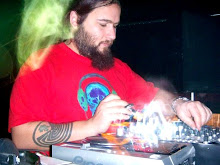27.6.10
Against Ideology ? a lecture by CrimethInc. in Bfest 2010
Against Ideology?
From notes prepared for a panel discussion at the 2010 B fest http://bfest.gr in Athens, Greece, at which a CrimethInc. agent was invited to speak about “The End of Ideology and the Future Events”
While religious fundamentalism is still a powerful force, ideology seems to be on the wane as a motor of secular revolutionary activity. The days are long past when groups like the Communist Party could command millions of adherents worldwide. Should anarchists celebrate this decline, positioning ourselves atop the crashing wave of history? Is ideology itself the problem?
But what would it mean to be against ideology? To get to the bottom of this, we have to understand precisely what we mean by the term.
These waters have been muddied by countless Marxists before us. Marx insisted that ideology is determined by who controls the means of production, and functions to blind the proletariat to their own exploitation. But isn’t Marxism the ideology par excellence, that has blinded untold millions? And how could class-based relations of production suffice to explain its proliferation throughout the 20th century? If some of Marx’s disciples have attempted to update his analyses to keep up with a world that has never borne out his predictions, we should be as suspicious of them as we are of all ideologues.
It’s easy to see the pitfalls of ideology when we examine the dogmatism of our enemies. But unless ideology is simply what we call the ideas of those with whom we disagree, we should be able to critique it in ourselves as well.
But What Is Ideology, Anyway?
The nature of ideology remains an enigma for contemporary anarchists: we know we’re against it, but we can’t pin down what it is.
Our own collective has struggled with this for a decade and a half. Early on, in Days of War, Nights of Love http://www.crimethinc.
Our colleagues fare little better. Interviewed by Void Network http://voidnetwork.
Resorting to the dictionary, we find that ideology is “A system of ideas and ideals, especially one that forms the basis of economic or political theory and policy.” By that definition, it appears difficult to outline an anarchist opposition to ideology: if we declare ourselves against systems of ideas and ideals, how can we maintain a critique of hierarchy and oppression? Worse yet, on what ground could we oppose such systems, without subscribing to such a system ourselves?
So let us approach the subject from another direction, broaching possibilities rather than charting territory, in hopes of making progress without devising an ideological blueprint for resisting ideology.
What Could It Mean to Oppose Ideology?
If the hallmark of ideology is that it begins from an answer or a conceptual framework and attempts to work backward from there, then one way to resist ideology is to start from questions rather than answers. That is to say—when we intervene in social conflicts, doing so in order to assert questions rather than conclusions.
What is it that brings together and defines a movement, if not questions? Answers can alienate or stupefy, but questions seduce. Once enamored of a question, people will fight their whole lives to answer it. Questions precede answers and outlast them: every answer only perpetuates the question that begot it.
The term anarchism is itself useful not because it is an answer, but because it is a question—because it is more effective than other terms (freedom, community, communism) at raising the questions we wish to ask. What does it mean to live without hierarchy, or to struggle against it? This single word offers endless points of departure, endless mysteries.
Perhaps the anarchist struggle is an attempt to enact a concrete program, to reach a forechosen destination—this is the ideological way of conceiving our project. But perhaps this utopia is unreachable, and its real significance is as a motivating force to enable us to live differently today. If this is the true value of utopian programs, then the less attainable they are the better.
But what else could it mean to resist ideology? Perhaps it means rejecting the Platonic conception of knowledge, in which it refers to some “true reality” more essential than lived experience. Those who spend a great deal of time studying and constructing theory often mistake their abstractions for real-world phenomena, when in fact they are only generalizations derived from individual experiences. Valuing the irreducible infinity of our own lives over the inert prescriptions of the dead, and knowing better than to believe ourselves infallible, we should frame our ideas as hypotheses rather than universal principles. Hypotheses can be tested, refined, and tested again, on an ongoing basis.
In this light, anarchism itself is only a broad generalization, a hypothesis that life is more fulfilling without hierarchy.
Perhaps resisting ideology means ceasing to regard our ideas as possessing meaning apart from the ways we are able to put them into practice. During peaks of struggle, people tend to focus on practical questions, and theory takes flesh in day-to-day actions; during plateaus of defeat, theory tends to become separate from activity, a specialized sphere unto itself. In a vacuum, the elaboration of theory can become a surrogate activity, compensating for all one is not doing, accustoming one to thinking rather than doing—as if the two could be disconnected! Thus ideologies become extensions of the egos of those who subscribe to them, who pit them against each other like rivals at a dogfight.
Perhaps resisting ideology means attempting to do without binary distinctions and assessments. Rather than taking positions for or against broad categories—“student organizing,” “reformism,” “violence,” even “ideology”—we could see each of these as composed of conflicting currents and tendencies. In this view, the role of theory is not to endorse or condemn, but to study this nuanced interplay of forces in order to inform strategic action.
Can we imagine resisting ideology in more concrete terms—for example, when it comes to organizing and outreach? Perhaps it means not positioning ourselves in an ideologically defined camp, but focusing on destabilizing the existing social terrain: creating new connections and circulating subversive energy rather than to attempting to hold territory. Anarchists who take this approach direct their attention out of the anarchist community, approaching people in other communities rather than debating details with those who share a common theoretical language. We certainly can’t expect others to leave their comfort zones if we will not leave ours.
A corollary of this is that those in the midst of transformation are the real experts on social change, not career radicals who came to rest in one position decades ago. If this is so, the latter should follow their lead, not the other way around.
And obviously, resisting ideology means reconsidering habitual strategies and tactics, constantly challenging ourselves and our conceptions, not being too enchanted with the sound of our own voices.
And Instead of Ideology?
Of course, a complete disavowal of ideology is untenable—the very idea presupposes some sort of “system of ideas and ideals.” Ideology is not something we can escape or banish; at best, we can maintain a healthy suspicion of our own.
Pretensions of being completely against or outside ideology can be dangerous, first because they create the illusion that one has no need for such suspicion. Insisting that everyone else is a deluded ideologue is a good indication that you are one yourself, whether you’re a hard-line Marxist or a self-proclaimed apolitical nihilist.
Those who profess to reject ideology entirely often end up glorifying certain activities in place of political commitments—for example, vandalism and violence against authority figures. But divorced from any political program, there is no guarantee that these will have liberating consequences; only those who grew up far from Kosovo and Palestine could conflate all such activity with resistance to hierarchy. Most of those who affect this posture are invested in some kind of political values, whether or not they admit it.
Grandiose rhetoric about the unknown (or “destroying the world”) notwithstanding, we can only ground resistance to the existent in what we know. If the unknown alone (or pure destruction) were our only objective, how would we know where to start? It is better to admit to the ideas and ideals that shape our decisions.
Ideologies—or should we say, ideas, ideals, values, meanings—are socially produced. From the moment of our birth, they construct us and we construct and reconstruct them. This is the inescapable fabric of our existence as social beings. Anarchism proposes that we could participate in this process intentionally, collectively producing value and meaning and thus ourselves. The essence of self-determination is not simply the ability to make choices for oneself, but to make oneself in the process. Winning this power is a much greater undertaking than any single battle that could be fought in the street.
Capitalism appears to perpetuate itself without ideology: it gives the impression that it does not need people to believe in it so long as they have to participate in it to survive. Yet let us not forget that millions of people in the so-called New World and elsewhere chose to fight and die rather than survive on its terms, regardless of the conveniences Western Civilization offered. The “material needs” that drive this system are still socially produced: one has to have internalized a certain amount of materialism in the capitalist sense to buy into materialism in the Marxist sense.
So perhaps we can frame our project in terms of values rather than ideology. We are not trying to propagate a particular system of ideas so much as to foster anti-authoritarian desires. By starting from what we want rather than what we believe, we can avoid the pitfalls of dogmatism and find common cause with others that transcends theory.
“I protest against the charge of dogmatism, because, though I am unflinching and definite as to what I want, I am always doubtful about what I know.” –Errico Malatesta
24.6.10
Free Camping Movement / Sat. 26 June 2010 / Syntagma Greek Parliament sq.// from 12 in the morning until 12 in the night
Free Capming Movement
Kίνημα Για Την Ελεύθερη ΚατασκήνωσηΣάββατο 26 Ιουνίου 2010
Κάμπινγκ Στην Πλατεία Συντάγματος
Από τις 12 το πρωί έως τις 12 το βράδυ
Saturday 26 June 2010
Free Camping at the Greek Parliament square
Syntagma sq. // from 12 in the morning to 12 in the night
bring your tent, hammack, swiming cloths, friends and smiles
Ελάτε όλοι
με σκηνές, μαγιώ, σωσίβια, αιώρες,
μάσκες & στρώματα θαλάσσης και αναπνευστήρες,
sleeping bags, φίλους και χαμόγελα
+ ALL DAY SOUND SYSTEM
(REGGAE, PSY DUB, SPACE MUSIC, ACID JAZZ, CHILL OUT VIBRATIONS):
12.00- 13.00 ALEX
13.00- 14.00 DIFFER
14.00- 15.00 CYDELIX
15.00- 16.00 LO-FI
16.00- 17.00 AURA
17.00- 18.00 MONKEY MAN
18.00- 19.00 HIGHPNO
19.00- 20.00 SISSY STARDUST
20.00- 21.00 SIDE LINER
21.00- 22.00 CABEIRI
22.00- 22.45 LIVE:
QUILOMBO
22.45- 23.30 CRYSTAL ZERO
23.30- END INVISIBLE
12.00- 13.00 ALEX
13.00- 14.00 DIFFER
14.00- 15.00 CYDELIX
15.00- 16.00 LO-FI
16.00- 17.00 AURA
17.00- 18.00 MONKEY MAN
18.00- 19.00 HIGHPNO
19.00- 20.00 SISSY STARDUST
20.00- 21.00 SIDE LINER
21.00- 22.00 CABEIRI
22.00- 22.45 LIVE:
QUILOMBO
22.45- 23.30 CRYSTAL ZERO
23.30- END INVISIBLE
Κάλεσμα:
supported by:
ΚΕΝΟ ΔΙΚΤΥΟ | ΗΛΙΟΣΠΟΡΟΙ | ΝΟΣΟΤΡΟΣ | ΕΛΕΥΘΕΡΗ ΚΑΤΑΣΚΗΝΩΣΗ
Όλες οι παραλίες, οι θάλασσες, τα βουνά, τα δάση, τα ποτάμια, οι ουρανοί αυτού του κόσμου ανήκουν σε όλους εμάς και όλοι μαζί θα διεκδικήσουμε παντού την ελευθερία να απολαμβάνουμε την ζωή χωρίς περιορισμούς και χωρίς απαγορεύσεις. Σκοπός του «Κινήματος Για Την Ελεύθερη Κατασκήνωση» είναι να διδάξουμε ο ένας τον άλλον την Αγάπη, τον Σεβασμό και την Προστασία της Φύσης και να υπερασπιστούμε την απόλυτη Ελευθερία της διαβίωσης στην απέραντη αγκαλιά της Γης και του Ουρανού. Θα ταξιδέψουμε με τους αγαπημένους μας ανθρώπους, τους φίλους μας και τους εραστές μας παντού, θα ζήσουμε ελεύθεροι όπου εμείς επιλέξουμε, θα προστατέψουμε τα δάση και τις παραλίες με τα γυμνά κορμιά μας… Δεν θα ζητήσουμε άδεια από κανέναν για να είμαστε ελεύθεροι
Ο∆ΗΓΟΣ ΕΛΕΥΘΕΡΗΣ ΚΑΙ ΥΠΕΥΘΥΝΗΣ ΚΑΤΑΣΚΗΝΩΣΗΣ
Πώς συνυπάρχουμε αρµονικά µε τους άλλους κατασκηνωτές, τους κάτοικους της περιοχής και µε την ίδια τη φύση; Απέναντι στον οργανωμένο περιορισµό της ελευθερίας, του ζωτικού χώρου έκφρασής της και στην περιθωριοποίηση του φυσικού τρόπου ζωής, είναι σηµαντικό για τους κατασκηνωτές να µάθουµε τουλάχιστον να συνυπάρχουµε ακολουθώντας κάποιες κοινές συνήθειες: >>Παρκάρουµε τα αυτοκίνητα µακριά από την παραλία και δεν εµποδίζουµε την πρόσβαση στην παραλία >> Χρησιμοποιούμε σακούλες για τα απορρίµµατα, συµπεριλαµβανοµένων των χαρτιών υγείας που ξεθάβονται από ζώα >> Μαζεύουµε όλα τα δικά µας σκουπίδια αλλά και τα υπόλοιπα που βρίσκουµε. Χρησιµοποιούμε γάντια µιας χρήσης ή µια σακούλα φορεµένη στο χέρι µας για να κάνουµε τη διαδικασία λιγότερο δυσάρεστη.>> Καθορίζουµε πού είναι η «τουαλέτα» και σκάβουµε λάκκους τουλάχιστον 15 εκ. κάθε φορά ή τα σκεπάζουμε με άμμο παραλίας. Αντί για χαρτί τουαλέτας χρησιμοποιούμε νερό από την θάλασσα σε πλαστικό μπουκάλι >> Αποφεύγουμε τη χρήση έστω κα βιοδιασπώµενων σαµπουάν και σαπουνιών στο νερό γιατί έτσι ρυπαίνουμε τη θάλασσα, τη λίµνη, ή το ποτάµι.>> Είμαστε έτοιμοι να κατανοήσουμε τις ειδικές συνθήκες του μέρους στο οποίο βρισκόμαστε και να το προστατέψουμε με την παρουσία μας. Σεβόµαστε τη βλάστηση, και την πανίδα της περιοχής ανάλογα με τις συνθήκες. Για παράδειγμα σε περιοχές όπου φωλιάζει η καρέτα-καρέτα, η φωτιά µπορεί να αποπροσανατολίσει χελώνες και χελωνάκια ή σε μέρη με πικνή βλάστηση η φωτιά είναι επικίνδυνη>> Στήνουµε τη σκηνή αρκετά µέτρα µακριά από το κύµα ώστε να µην εµποδίζουµε τους υπόλοιπους κατασκηνωτές αλλά κυρίως να µην ενοχλούµε καβούρια, χελώνες, πουλιά.>> Τα έντοµα είναι κάτοικοι της περιοχής, εµείς είµαστε οι επισκέπτες. Τα αποφεύγουµε µε φυσικά εντοµοαπωθητικά, και µε το να κρατάµε κλειστή τη σήτα της σκηνής όλη μέρα >> Κατασκευάζουµε αυτοσχέδια τασάκια για τις γόπες µας.>> Δεν θεωρούμε το σημείο που μένουμε τσιφλίκι μας, δεν δημιουργούμε συνθήκες μόνιμης εγκατάστασης>> Σε περίπτωση επίθεσης της αστυνομίας ενωνόμαστε, εκφράζουμε συλλογική αλληλεγγύη και απαντάμε στις προκλήσεις όλοι μαζί>> Προσφέρουμε, μοιραζόμαστε, γνωριζόμαστε και δημιουργούμε, στο μέτρο του επιθυμητού, συνθήκες συλλογικής διαβίωσης με τους άλλους κατασκηνωτές>> Αφήνουµε το δάσος ή την παραλία όπως τη βρήκαµε, και αν γίνεται, πολύ καλύτερη...
ΤΑ ΠΑΙΔΙΑ ΤΗΣ ΚΡΙΣΗΣ ΚΑΝΟΥΝ ΕΛΕΥΘΕΡΗ ΚΑΤΑΣΚΗΝΩΣΗ
ΕΛΕΥΘΕΡΗ ΖΩΗ // ΕΛΕΥΘΕΡΟ ΤΑΞΙΔΙ // ΕΛΕΥΘΕΡΗ ΚΑΤΑΣΚΗΝΩΣΗ
VOID NETWORK
[Theory, Outopia, Empathy, Ephemeral Arts]
est.1990 // Athens, London, New York, Rio De Janeiro
http://voidnetwork.blogspot.
+ global movement theory & info:
http://voidmirror.blogspot.com
+ Void Network Channel:
http://www.youtube.com/
[Theory, Outopia, Empathy, Ephemeral Arts]
est.1990 // Athens, London, New York, Rio De Janeiro
http://voidnetwork.blogspot.
+ global movement theory & info:
http://voidmirror.blogspot.com
+ Void Network Channel:
http://www.youtube.com/
15.6.10
Crack Capitalism! // John Holloway talks at the Occupied Park of Exarchia // Monday 21 June 2010
Crack Capitalism!
Ραγίζοντας τον Καπιταλισμό!
ανοιχτή δημόσια ομιλία / διάλογος
με τον θεωρητικό της αυτονομίας
John Holloway
Δευτέρα 21 Ιουνίου 2010
ώρα έναρξης 8:30
στο αυτοδιαχειριζόμενο
πάρκο ναυαρίνου
οδός ναυαρίνου & ζωοδ.πηγής
Εξάρχεια
"Ο καπιταλισμός δεν είναι η απείρως ευέλικτη κοινωνία που μερικές φορές μοιάζει να είναι, ικανή να απορροφήσει οτιδήποτε εκσφενδονίσουμε εναντίον της, να μετατρέψει τον Τσε και τον Μάρκος σε μπλουζάκια ή την εξέγερση του 1968 σε ένα νέο μοτίβο κυριαρχίας. Το κεφάλαιο έχει τα όρια του, πρέπει να ακολουθήσει κάποιους κανόνες, εκ των οποίων ο βασικός είναι Συσσωρεύστε, συσσωρεύστε! Έχει, επομένως, νόημα, να μιλάμε για το σπάσιμο ή το ράγισμα του κεφαλαίου. Δεν είναι τζάμι, ωστόσο έχει μια ακαμψία, όσο ελαστική και ευπροσάρμοστη μπορεί αυτή να μοιάζει: το κεφάλαιο είναι ένα σύνολο κανόνων που διοχετεύουν τη ροή της δραστηριότητάς μας. Για να σπάσουμε το κεφάλαιο, πρέπει να σπάσουμε τους κανόνες. Πώς σπάμε τους κανόνες; Παλιότερα υπήρχαν κάποιοι κανόνες για το πώς να το κάνουμε, αλλά ευτυχώς τους σπάσαμε." John Holloway
για περισσότερες πληροφορίες σχετικά με τον John Holloway:
κείμενα του John Holloway:
Free Camping Movement // Saturday 26 June 2010 // Free Camping in Syntagma sq. (Greek Parliament Square)
Free Camping Movement
Kίνημα Για Την Ελεύθερη Κατασκήνωση
Σάββατο 26 Ιουνίου 2010
Κάμπινγκ Στην Πλατεία Συντάγματος
Από τις 12 το πρωί έως τις 12 το βράδυ
Saturday 26 June 2010
Free Camping at the Greek Parliament square
Syntagma sq.Κάλεσμα // info:
supported by:
ΚΕΝΟ ΔΙΚΤΥΟ | ΗΛΙΟΣΠΟΡΟΙ | ΝΟΣΟΤΡΟΣ | ΕΛΕΥΘΕΡΗ ΚΑΤΑΣΚΗΝΩΣΗ
void network | iliosproi | nosotros | free camping facebook group
-- VOID NETWORK
[Theory, Outopia, Empathy, Ephemeral Arts]
est.1990 // Athens, London, New York, Rio De Janeiro
http://voidnetwork.blogspot.
+ global movement theory & info:
http://voidmirror.blogspot.com
+ Void Network Channel:
http://www.youtube.com/
12.6.10
Free Camping Movement Assembly
Τη Κυριακή 13 Ιουνίου στις 7μμ θα συναντηθούμε πάλι στον ελεύθερο κοινωνικό χώρο Nosotros (Εξάρχεια, Θεμιστοκλέους 66) για να οργανώσουμε τη δράση για την ελεύθερη κατασκήνωση που θα γίνει το Σάββατο 26 Iουνίου στο Σύνταγμα.
περισσότερες πληροφορίες:
for more info:
10.6.10
Many Wonderful Events at the public space of the Exarchia area / Athens Greece in the next days
This is a catalogue (in Greek language) of many wonderfull events that will take place in the public space of the Exarchia area in Athens Greece in the next days organized by many collectives, initiatives and people as also an invitation for participation at the works that will continue the creation of the Occupied Park of Exarchia. The events are a part of the plan of the movement to defend Exarchia area as an autonomous zone free from drugs, mafia and police.
Πολλές οι ενδιαφέρουσες εκδηλώσεις στα Εξάρχεια το τριήμερο 11-13 Ιουνίου. Ας ενισχύσουμε με τη φυσική μας παρουσία όσες μπορούμε! Οι εκδηλώσεις οργανώνονται από πολλές συλλογικότητες, άτομα και πρωτοβουλίες στα πλαίσια του σχεδίου του κινήματος να υπερασπιστούμε τα Εξάρχεια ως μια αυτόνομη ζώνη, ελεύθερη από ναρκωτικά, μαφία και αστυνομία.
ΠΑΡΑΣΚΕΥΗ (11/6)
20:30 Προβολή ντοκυμανταίρ για την εξέγερση στην Οαχάκα στην πλατεία Εξαρχείων.Διοργάνωση:Κάτοικοι,Συλλογικότητες και άτομα από τα Εξάρχεια.
21:00 Αφγανική κουζίνα από την ομάδα Athens reCYCling REFugee initiative για την οικονομική ενίσχυση Αφγανών προσφύγων της ομάδας.Διοργάνωση:Nosotros(στο χώρο του Nosotros).
ΣΑΒΒΑΤΟ (12/6)
11:00 Κάλεσμα για εργασίες στο Αυτοδιαχειριζόμενο Πάρκο Ναυαρίνου & Ζωοδόχου Πηγής:απομακρύνουμε κι άλλο τσιμέντο, ανοίγουμε καινούριο παρτέρι,φυτεύουμε, συνεχίζουμε να διαμορφώνουμε την παιδική χαρά (και Κυριακή,13/6).
18:00 Έκθεση φωτογραφίας από τον Φωτογραφικό Κύκλο του Nosotros στην πλατεία Εξαρχείων.
19:00 Παραδοσιακοί ρυθμοί από την Ελλάδα με την ομάδα κρουστών του μουσείου λαϊκών μουσικών οργάνων. Στην πλατεία Εξαρχείων. Διοργάνωση: Nosotros,σε συνεργασία με τις ομάδες που συμμετέχουν.
20:30 Παράσταση καραγκιόζη στην πλατεία Εξαρχείων με το θέατρο σκιών ΝΑΜΑΣΤΕ και τον καραγκιοζοπαίχτη Σπύρο Ξυπνητό. Διοργάνωση:Κάτοικοι,Συλλογικότητες και άτομα από τα Εξάρχεια.
21:00 LIVE με τους NO MIND στην πλατεία Εξαρχείων. Διοργάνωση: Nosotros.
22:00 LIVE με τους HUMAN ERROR στην πλατεία. Διοργάνωση: Nosotros.
ΚΥΡΙΑΚΗ (13/6)
18:00 Παιδικές εκδηλώσεις στην παιδική χαρά του Αυτοδιαχειριζόμενου Πάρκου Ναυαρίνου & Ζωοδόχου Πηγής. Θεατρικό παιχνίδι, αφήγηση παραμυθιών, εργαστήρι κατασκευής μουσικών οργάνων, εικαστικό εργαστήρι, μουσικές και πολλές εκπλήξεις!
8.6.10
Interview with Occupy California student movement by Tasos Sagris and Sissy Doutsiou from Void Network
>>>>>>>>This is an interview with Occupy California student movement by Tasos Sagris and Sissy Doutsiou from Void Network for the antiauthoritarian Greek newspaper Babylonia. People from the Occupy California / Occupy Everything! student movement visited Greece during May/June 2010 and they talked in BFest and in the Occupied Self-Organized Park of Exarchia about the student struggles in California, New York and all other states of U.S.A.
1. What is the Occupy California movement & when did it start?
The Education Crisis Movement in California emerged in the summer of 2009 when it became clear that the University of California (UC) system, which encompasses 10 campuses across the state, would be introducing massive austerity measures in the upcoming semesters. These massive tuition increases of 32%, layoffs of unionized workers and cuts in classes and services can all be understood as steps towards the privatization of public education in California. Administrators and state politicians have used the current economic crisis as a cover for implementing these plans for structural adjustment and the further financialization of the university. In this supposed 'crisis' they continue to sell bonds to finance massive university construction projects and these bonds are pledged against future tuition increases. This neoliberal scheme of privatization is being implemented on the backs of ever more indebted students and the destruction of organized labor in the education sector.
The movement exploded across the UC system as school began in Fall of 2009 with walkouts, marches and occupations of school buildings. Workers, faculty and students joined together in exciting yet fragile alliances to fight against the various austerity measures being proposed that year. This energy climaxed during the week of November 18 as the UC Regents (the California Governor appointed politicians who oversee the UC system) met at UCLA for three days to vote on the proposed measures. Students attempted to block the meetings and scuffled with police in UCLA while marches and rallies were called at every major campus in the state. The ultra leftist and insurrectionary anarchist tendencies in the movement occupied many buildings, some with barricades and some open, throwing much of the UC system into chaos that week. Riot police from various agencies across the state were eventually forced to storm these campuses and fight with the occupying insurrectionists in order to regain control. By the end of the week and in spite of the massive display of resistance, the regents had voted to implement the whole austerity plan and many students and allies had been arrested.
Some occupations and demonstrations continued over the following months and these climaxed again on March 4, 2010. This date had been set back in Fall 2009 as a national day of action at schools and universities. While the height of conflict in the UC system was definitely during the end of November 2009, a whole new wave of resistance emerged in public K-12 schools, community colleges and state schools in the March 4 mobilizations. There were too many walkouts to count and in some cases, the more radical elements in the mobilizations stormed interstate freeways battling police and bringing traffic to a halt for hours. What began in California as a movement in the university system had expanded to a nation-wide struggle at all levels of education.
2. What is the cause of your fight and what forms of struggle are you using?
The Education Crisis Movement in California emerged in the summer of 2009 when it became clear that the University of California (UC) system, which encompasses 10 campuses across the state, would be introducing massive austerity measures in the upcoming semesters. These massive tuition increases of 32%, layoffs of unionized workers and cuts in classes and services can all be understood as steps towards the privatization of public education in California. Administrators and state politicians have used the current economic crisis as a cover for implementing these plans for structural adjustment and the further financialization of the university. In this supposed 'crisis' they continue to sell bonds to finance massive university construction projects and these bonds are pledged against future tuition increases. This neoliberal scheme of privatization is being implemented on the backs of ever more indebted students and the destruction of organized labor in the education sector.
The movement exploded across the UC system as school began in Fall of 2009 with walkouts, marches and occupations of school buildings. Workers, faculty and students joined together in exciting yet fragile alliances to fight against the various austerity measures being proposed that year. This energy climaxed during the week of November 18 as the UC Regents (the California Governor appointed politicians who oversee the UC system) met at UCLA for three days to vote on the proposed measures. Students attempted to block the meetings and scuffled with police in UCLA while marches and rallies were called at every major campus in the state. The ultra leftist and insurrectionary anarchist tendencies in the movement occupied many buildings, some with barricades and some open, throwing much of the UC system into chaos that week. Riot police from various agencies across the state were eventually forced to storm these campuses and fight with the occupying insurrectionists in order to regain control. By the end of the week and in spite of the massive display of resistance, the regents had voted to implement the whole austerity plan and many students and allies had been arrested.
Some occupations and demonstrations continued over the following months and these climaxed again on March 4, 2010. This date had been set back in Fall 2009 as a national day of action at schools and universities. While the height of conflict in the UC system was definitely during the end of November 2009, a whole new wave of resistance emerged in public K-12 schools, community colleges and state schools in the March 4 mobilizations. There were too many walkouts to count and in some cases, the more radical elements in the mobilizations stormed interstate freeways battling police and bringing traffic to a halt for hours. What began in California as a movement in the university system had expanded to a nation-wide struggle at all levels of education.
2. What is the cause of your fight and what forms of struggle are you using?
As the movement grew in intensity there emerged a number of contradictions within it that exposed the varying goals of its participants. Even the administrations of the various schools attempted to portray themselves as part of the movement. Their agenda of recuperation revolved around trying to manipulate the radical mobilizations into simply lobbying the state of California for more money without changing the structure of the university system, let alone that of society. This administration campaign was most clear in the lead up to March 4 when administrators, politicians and reactionary faculty teamed up to discourage any demonstrations on campuses and instead encouraged everyone to attend carefully managed rallies on the steps of the state capitol in Sacramento and to pursue lobbying as a way of attaining more money for public education.
Another tendency that emerged within the movement and claimed to represent 'the masses' was composed of official campus student groups, some sympathetic faculty and a whole range of moderate socialist organizations from on and off campus such as the ISO. This centrist wing of the movement had the goal of 'saving public education' and keeping the university an accessible institution. The general assemblies across California were dominated by these groups and they tended to mobilize around non-confrontational and passive forms of demonstration such as rallies and marches. These right wing trotskyists, moderate reformists and carreerist student activists used the language of democracy, accountability and transparency to describe their actions and take the moral high ground, even though their decision making processes never matched their rhetoric. Much of their work revolved around deescalating the energy of the movement and channeling it into more controlled manifestations, in an attempt to gain bargaining power and legitimacy in the eyes of Administrators.
Another tendency that emerged within the movement and claimed to represent 'the masses' was composed of official campus student groups, some sympathetic faculty and a whole range of moderate socialist organizations from on and off campus such as the ISO. This centrist wing of the movement had the goal of 'saving public education' and keeping the university an accessible institution. The general assemblies across California were dominated by these groups and they tended to mobilize around non-confrontational and passive forms of demonstration such as rallies and marches. These right wing trotskyists, moderate reformists and carreerist student activists used the language of democracy, accountability and transparency to describe their actions and take the moral high ground, even though their decision making processes never matched their rhetoric. Much of their work revolved around deescalating the energy of the movement and channeling it into more controlled manifestations, in an attempt to gain bargaining power and legitimacy in the eyes of Administrators.
The most explosive and radical element in the movement found itself constantly at odds with these first two elements. The ultra left tendencies of insurrectionary anarchists and communists were quick to push the envelope of struggle in the growing movement and established militant occupations of campus buildings as their primary tactic. These forces, which never established any formal organizations, were composed primarily of radical students, 'summit hopping' anarchists, and some faculty and workers. They understood the fight on the campuses to be a front in a larger fight against capitalism and the violent economic restructuring that has followed the major crisis of the neoliberal epoch. They communicated primarily from various communiques released from seized buildings and organized in more clandestine networks of various crews, affinity groups and meetings that stretched across the state.
Time and again, their actions set the tone of the overall mobilizations and expanded the repertoire of acceptable tactics. By early 2010 these tactics included open and barricaded occupations, massive dance parties, blockades of roads and small night time riots. The energy generated from these radical displays of resistance and confrontation was what propelled the movement forward and time and again the more reactionary and recuperative forces would simultaneously criticize these actions and attempt to capitalize off of them for their own purposes. While many people were turned off by the more secretive and inaccessible nature of this more militant organizing, the spontaneous participation of thousands of students and allies in these confrontational acts of escalation demonstrated a thirst on the part of the movement for ways to get involved outside of listening to speeches at rallies and signing petitions.
3. What does it mean for you “a movement with no demands”?
Some of the more radical and militant forces within this movement have adopted the slogan 'Occupy Everything, Demand Nothing'. For these tendencies, the act of issuing demands immediately empowers decision makers such as administrators and politicians and orients the movement in the direction of the halls of power. The movement becomes reduced down to the radical wing of a lobbying effort whose fate is in the hands of those in the state who have the power to meet the demands or send in the riot police to crush the resistance. The first occupations chose to issue no demands to power. They turned their backs on the administration and the state and instead oriented themselves to the students and young people anxious about their future and looking for an outlet for their rage. 'Occupy Everything' was the cry that emerged from these occupations. It was a call to the people to take action and seize what belongs to everybody. Instead of asking power to improve conditions in education and the overall society, 'Occupy Everything, Demand Nothing' prescribes the immediate communization of space and confrontation with capital as the only means forward even if the autonomous and communized zones that emerge are only temporary at this point in the struggle.
4. For many people in USA there is a criticism of privilege of the students in the states. There is also a criticism of separation between the students and the other society, between the workers and the students, between the white and the people of colour. What is your opinion about these separations and how you are fighting back?
There is no denying that students in the University system are indeed very privileged in the class hierarchy in the US. However these privileges are quickly fading away in this round of capitalist restructuring. The universities are now cranking out students burdened with heavy debt into a society with no jobs and no future. Most students (even the majority of privileged university students) have to work throughout their time in school, many in low paying service industry jobs. So it is important to remember that even though these struggles have been centered around the campuses (where there is a physical concentration of young people) they are simultaneously struggles of students and struggles of young workers (or future workers). On top of this, there have been moments throughout the past months where organized labor in the education sector has been intimately involved in the mobilizations thus adding even more to the sense that the Education Crisis Movement is in reality a student-worker movement. While many of the alliances between students and workers have decomposed more recently, it is important to note that some local unions such as AFSCME (which represents campus janitors, the lowest level on the campus hierarchy) continue to be very supportive and integral to the movement.
Even though this movement emerged in 2009 from the UC system (the most privileged part of the public education system in California) in response to the specific austerity measures being implemented in that sector, it has now spread to the community colleges and K-12 public schools across California and the country. This is one of the most important directions the movement can go since this much broader range of schools is facing even more serious attacks in this round of neoliberal restructuring and has always been neglected by the state. The populations that attend community colleges tend to be working class or poor and are primarily people of color. The fact that many of these students (mostly part time) embraced the March 4 call for a national mobilization is a sign that this movement could become much more powerful as more and more marginalized people take the energy in new directions and directly confront the foundations of class oppression and exploitation in US society.
Among the radical and militant wing of the movement there has been a general rejection of so called 'identity politics' which has put the insurrectionists at odds with some entrenched people of color organizations, feminist groups and others on and off campuses. This rejection is understandable. Time and again, liberal identity politics have been used in the US to derail radical calls for escalation and confrontation with power and in some ways this is a legacy of the failures of the 1960s generation whose ghosts are omnipresent on UC campuses like Berkeley. Instead of focusing on structural changes in society, many of the remnants of this past era focus solely on giving specific marginalized people the opportunity to climb the ladders of power and any attempts to destabilize these ladders are derided as racist and dangerous to vulnerable populations. Whenever an occupation or a small riot would occur, regardless of the makeup of its participants, these groups would issue the same cookie cutter denouncements of the actions as being only accessible to privileged white men and irresponsibly putting people such as undocumented immigrants at unnecessary risk.
Despite the rejection of these counter revolutionary identity politics, the structures of white supremacy and patriarchy in US society remain extremely important pillars of exploitation and oppression that must be confronted head on and destroyed. In their haste to abandon these reactionary trends, some radical elements of the movement have been overly dismissive of issues related to privilege and have helped to burn important bridges. It is vital that this growing militant movement finds ways to deal effectively with institutional racism and white supremacy along with its attack against capitalism, both on an off campus. Ignoring these core components of power in the US and seeing them as mere distractions will ensure that these mobilizations will eventually sputter and fail.
5. What is “Electro-Communism”? ...what is the influence of d.i.y. rave parties in the creation of an enthusiastic wave youth movement of social disobedience?
Electro-Communism is a term that originally emerged from the Education Crisis Movement in Santa Cruz during the first occupations of Fall 2009. It refers to the use of massive dance parties as ways to create temporary occupied spaces (in plazas and open areas) as well as a tactic from which to launch more militant actions. The dance parties function as very accessible ways for movement participants to mingle and find common cause with others who are just looking for a party while helping to politicize those who did not join the party for reasons other than to have fun.
Occupations have been launched out of these massive rave-like parties and in some cases the parties have been used to defend existing occupations. Masses of young people dancing and enjoying themselves present a formidable obstacle to riot police attempting to evict an occupation. There have also been instances where the parties have spontaneously evolved into militant riots although constantly maintaining somewhat of a party atmosphere with hip hop and electronic music blasting in the streets as students and radicals confront police, build barricades and destroy property.
These parties also serve as ways to relax, socialize and let off steam for those constantly involved in the stressful day to day work of building and maintaining the movement. This aspect should not be downplayed!
6. Do you believe that your movement can turn university campus in zones of social war and how can you expand your social and political influence?
The California Education Crisis Movement was not successful in its most immediate goals of halting the austerity measures being administered to the UC system. However, it was very successful in the sense that it unleashed a large and militant new wave of mobilizations in the US at a time when there seemed to be no response from anarchists and the Left to the brutal structural adjustment programs being imposed in this moment of neoliberal crisis. Much of the energy on the UC campuses has now died down, but for a few months movement participants found themselves in a constant state of social war with the campus as their primary battleground. This has been an inspiration to many across the US and a new generation of radicals has cut their teeth in these struggles. This is our most important victory.
The hangover from the death of the antiglobalization movement and the constantly declining antiwar movement haunted radicals in the US for nearly a decade. The movement that emerged on the UC campuses and was inspired by those in Greece, Mexico, South Korea and France is a real turning point away from this sad period. This new generation is unencumbered with baggage from these previous failures and has already begun to make history. Their influence is already being felt outside the so-called 'student movement'. At a recent demonstration in San Francisco against the transit police who murdered Oscar Grant on New Year's day 2009, hundreds of demonstrators clogged metro platforms and disrupted train service for several hours. The following week one of the cops involved in the shooting was fired by transit officials spooked by the spectre of more disruptions. The vast majority of those who clogged the metro platforms were young people from the campuses who now saw common cause with movements against police brutality after their participation in the Education Crisis Movement. What has happened in California has the potential to be about much more than education and involve many more people than students and some education sector workers. It is our job as radicals to ensure that this happens and the revolt spreads far and wide.
for more info:
for more info about Void Network:
Subscribe to:
Posts (Atom)



.jpg)
































![VOID MIRROR [theory, info, global movement news]](https://blogger.googleusercontent.com/img/b/R29vZ2xl/AVvXsEiaLvlWRUHJgycn3xI3d8kfRy7JwD48VBDrUl4osdfXHWblUYSZrv_kakq0n4EYTxCnB4tBlqW3F3tCE7gdirCT2h7mjA2beX6e1tn4Sc5EFXsCxV1deIOXpLuwgjsv0Kn_ZURwlQ/s220/CeluBkCWQAAFgxB.jpg)

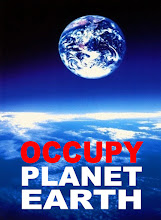










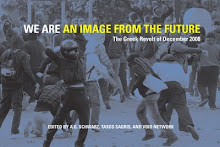


![READ TEXT ONLINE: WE ARE AN IMAGE FROM THE FUTURE [THE GREEK REVOLT OF DECEMBER 2008 ]](https://blogger.googleusercontent.com/img/b/R29vZ2xl/AVvXsEiSh9LwgbFVtp1LmXgtGFBHJd6XMGn7D1zhacFhu1rKb-ILRy-vEo9bDOQcqA3AMYp6grDF0h3lAZHW7HIPmPU-THY1GOBDE4NLSh_8amqgL7AnNLemp0tFOeKe6emqrfJk-1hPUw/s220/510T1GQ26KL._BO2%252C204%252C203%252C200_PIsitb-sticker-arrow-click%252CTopRight%252C35%252C-76_AA300_SH20_OU01_.jpg)





![THESES ON DRUGS [GREEK LANGUAGE]](https://blogger.googleusercontent.com/img/b/R29vZ2xl/AVvXsEiXbps2DJgHZ7MbN1LbTE9wlP-wedJMrC7UgMKj9u_WiSqzE7AGqKK_MDpdo8uCncOr1M_ij29TOenU19hiZtaaVytO4HrSAykfPr-TXsnXO6mfjCALzB10X27jPRFOydxBKUlk8g/s220/%25CE%2596%25CE%2597%25CE%25A4%25CE%2597%25CE%259C%25CE%2591+%25CE%25A4%25CE%25A9%25CE%259D+%25CE%259D%25CE%2591%25CE%25A1%25CE%259A%25CE%25A9%25CE%25A4%25CE%2599%25CE%259A%25CE%25A9%25CE%259D.jpg)








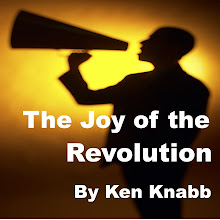




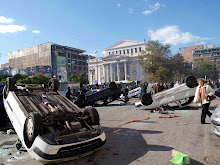
![GLOBAL EYE [LONDON section of VOID NETWORK]](http://1.bp.blogspot.com/_vSyk6SJoF1M/Sfr7KhauTxI/AAAAAAAACmM/nCtI6Kzenbg/S220/global+eye+photo.jpg)















